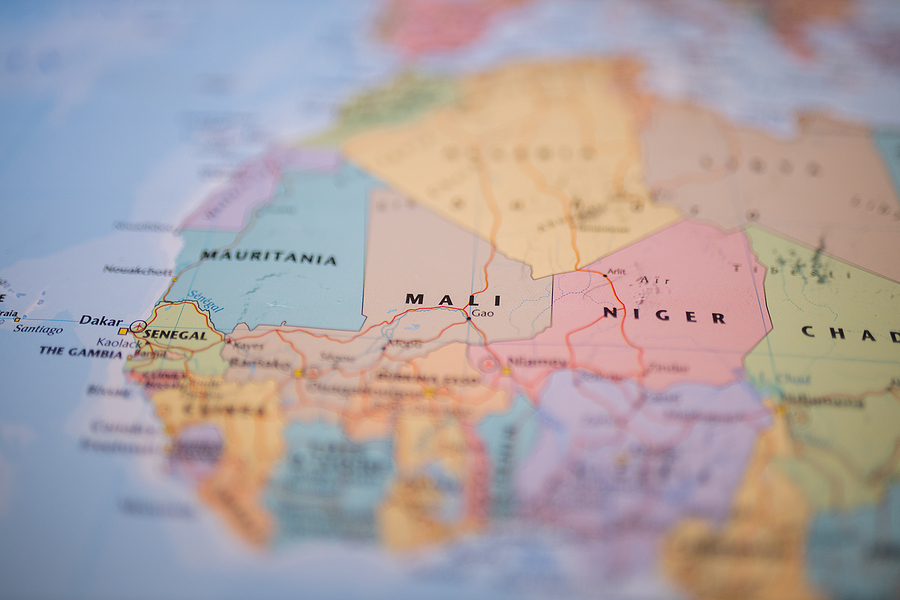By Pierre Tran
Paris – France has warned of pulling military support out of Mali following a media report of a prospective deal between Bamako and the Wagner Group, a shadowy Russian company of mercenaries seen to be expanding its presence in Africa.
The French defense and foreign ministers told parliamentarians on Sept. 14 there was grave concern the military junta in Bamako was close to signing contracts with Wagner to train the Mali army and provide personal protection for senior Mali officials.
“If the Malian authorities sign contracts with the Wagner company, it will cause extreme concern,” armed forces minister Florence Parly told the defense committee of the lower house National Assembly. Such a deal would contradict and lack coherence with the French mission in the Sahel region, she said.
“Wagner is a militia which has shown itself in the past in Syria and the Central African Republic to have carried out abuses and all sorts of violations that do not correspond with any solution, and so it is incompatible with our presence,” foreign minister Jean-Yves Le Drian told the foreign affairs committee.
Le Drian was speaking following a Reuters report that Mali was close to a deal in which the Russian private military services company could send at least 1,000 mercenaries and receive six billion CFA francs ($11 million) a month.
Wagner gets its name from the call sign of its commander, Dmitry Utkin, Luke Harding said in Shadow State (Harper), his book which tells of Russian named individuals quietly pursuing power around the world while seeking to undermine the West.
Utkin chose the name of the German composer as he particularly liked the helicopter combat scene in Francis Ford Coppola’s film Apocalypse Now, Harding narrated.
The Wagner company, allegedly funded by Evgeny Prigozhin, a “talented entrepreneur from St Petersburg,” allowed Russian private military services to be provided overseas, allowing the government to deny any responsibility, the book said.
Harding spoke about the Russian interest in the then U.S. President Donald Trump at the Folkestone Book Festival, speaking to journalist and university lecturer Lennox Morrison. Harding, a reporter with UK daily the Guardian, has also written A Very Expensive Poison, a book on the Russian poisoning of ex-FSB spy Alexander Litvinenko.
The Wagner company has been seen in Ukraine, Syria, Sudan, and moved into the Central African Republic soon after France pulled its troops out of the latter in 2016.
The UN said on March 31 that independent experts, including the UN working group on mercenaries, were concerned over the presence of the Russian companies Sewa Security Services, Lobaye Invest, and Wagner in the Central African Republic.
The presence of “Russian advisers” at the UN Multidimensional Integrated Stabilization Mission in the Central African Republic (MINUSCA) military mission and evacuation of wounded “Russian trainers” to UN mission bases caused concerns, the UN said.
“In particular, they (the experts) expressed concerns about contractors’ connections to a series of violent attacks since the nationwide poll,” the UN said, referring to elections held Dec. 27 2020.
Meanwhile, in Mali the prospective arrival of Russian mercenaries may come as France pulls its troops out of the north of the African nation.
Parly said Sept. 13 in a keynote speech that France was not leaving the sub-Saharan Sahel region, but was seeking greater cooperation with the G-5 Sahel nations and its European partner nations.
“That is what distinguishes us from what the Americans did in Afghanistan in the last few months: we talk to our partners, we coordinate with them,” she said.
French president Emmanuel Macron said July 9 there would be ‘transformation” of the mission in Mali, with a switch in strategy to targeting senior commanders of the al-Aqaeda and Islamic State movements, and giving support for a greater operational role for the five-nation Sahel coalition — Chad, Burkino Faso, Mali, Mauretania, and Niger.
France is withdrawing troops from Mali bases in Timbuktu, Kidal and Tissalit, cutting the number of French boots on the ground to some 2,500 from some 5,100.
There are nine European allies in the Takuba task force, led by the French special forces, which trains and provide combat support for Malian troops. Takuba is the Tuareg term for sword.
Belgium, Czech Republic, Estonia, Italy, Netherlands, Portugal, Romania, and Sweden have sent or signed up to send troops to Takuba. There are some 500 allied troops in Takuba, which is expected to grow to 600-700, a French defense official said.
Denmark plans to send troops next year to join Takuba, while Greece, Hungary and Serbia have shown interest, LCI radio said.
There is also a French special forces combat mission – also dubbed Sword – in Mali.
For training support, there is the 1,000 strong European Union Training Mission in Mali, backed by Germany and Spain.
There are talks to add a further 2,000 to the 13,000 troops in the UN Multidimensional Integrated Stabilization Mission in Mali (MINUSMA), with plans for the UN-backed units to be moved to the north and center of the country, taking up the ground being left by French combat troops.


